Never cruised before? Don’t worry – it’s easier than you think! This guide covers everything from picking your first ship to what happens on your last day. Skip the overwhelm and get straight answers from someone who’s helped thousands of first-timers have amazing cruise holidays.
Going on your first cruise is exciting, but I get it – it can also feel a bit overwhelming. Between choosing the right ship, figuring out what to pack, and wondering if you’ll actually enjoy floating around the ocean for a week, there’s a lot to think about.
Here’s the good news: after 20 years of helping first-time cruisers, I can tell you that most people’s biggest worry is usually something that turns out to be completely unnecessary. The “what if I get seasick?” crowd rarely do. The “what if I’m bored?” people usually struggle to fit everything in. And the “what if I don’t like the food?” folks typically gain a few pounds.
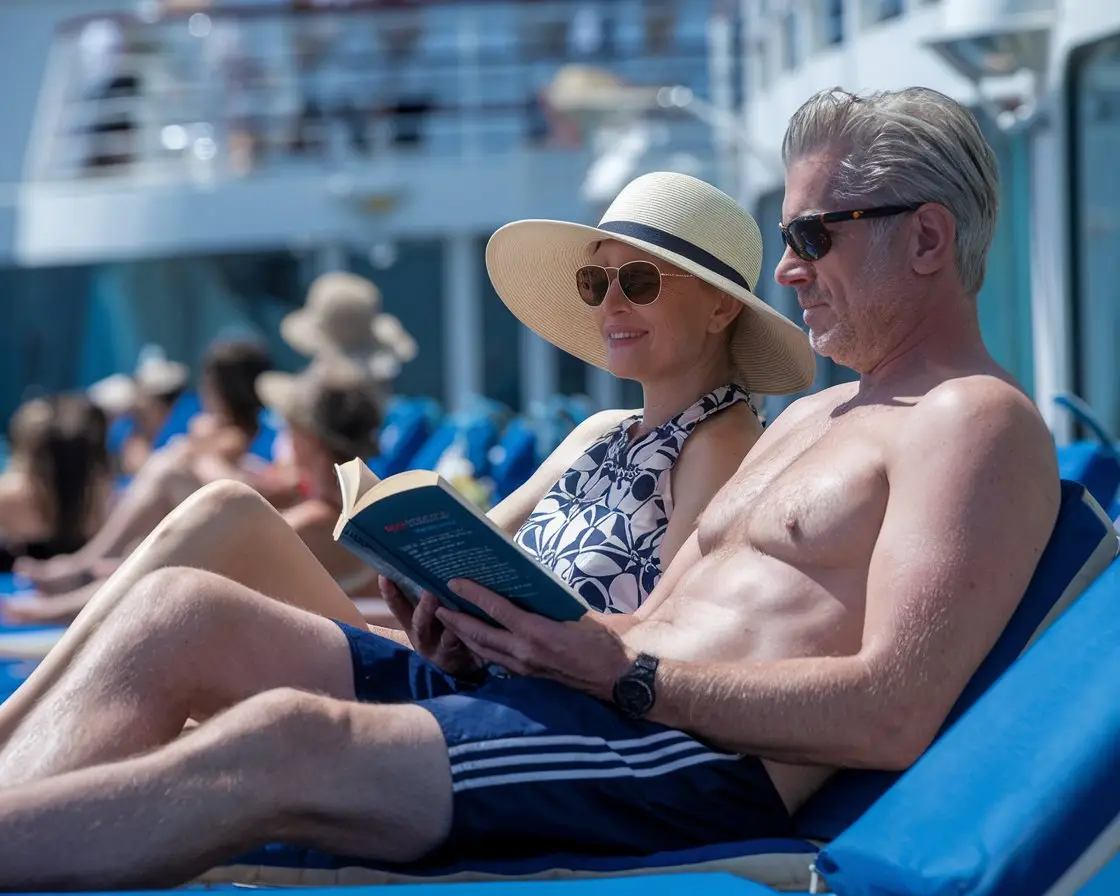
Your Essential First-Time Cruising Resources
Before we dive into the details, here are the guides that answer the questions I get asked most often:
- Cruise Ship Tips and Tricks – Insider secrets that make your cruise smoother
- How to Save Money on Your Cruise – Proven strategies to keep costs down
- Cruise Ship Etiquette – Social dos and don’ts onboard
- Tipping on Your Cruise Holiday – Who to tip, when, and how much
- Singles Cruises – Perfect if you’re cruising solo
- Family Cruises – Best options for families with kids
Step 1: Choose the Right Cruise for You
This is where most first-timers get overwhelmed. There are hundreds of cruise lines and thousands of itineraries. Here’s how to narrow it down:
Pick Your Departure Port
If you hate flying, consider cruises from the UK. No airport stress, no baggage restrictions, and if your train’s delayed, you’re not missing your cruise. Southampton is particularly brilliant for first-timers.
Choose Your Destination
- Mediterranean Cruises – Perfect for history and culture lovers
- Caribbean Cruise Ports – Great for beach lovers and warm weather
- Norwegian Fjords – Spectacular scenery, cooler weather
- Alaska Cruises – Wildlife and dramatic landscapes
Consider Your Travel Style
Are you someone who likes to be pampered or do you prefer adventures? Do you want formal dining or casual atmosphere? Different cruise lines cater to different personalities – check out our guide to matching your personality to the right cruise.
If you have specific accessibility needs, read our guide on cruising with a disability to ensure you choose the right ship.
For Caribbean Cruisers from the US:
Planning a Caribbean cruise from the United States? While the general cruise tips above apply everywhere, Caribbean cruising has its own unique considerations – from passport requirements (it’s complicated!) to managing costs that can quickly spiral, to navigating those picture-perfect but potentially overwhelming port days.
If you’re sailing from Miami, Fort Lauderdale, or another US port to the Caribbean, check out our comprehensive Caribbean cruise guide for anxious first-timers. We tackle every worry we’ve heard from nervous Caribbean cruisers, including that universal fear of getting left behind in a foreign port. Spoiler alert: you’re going to be absolutely fine.
Step 2: Book Early and Smart
Here’s something most people don’t realize: booking early often gets you the best deals and the most desirable cabins. Cruise lines offer early bird discounts and perks like onboard credits or free excursions.
If you’re flexible with dates, shoulder season cruises (just before or after peak times) offer better prices and fewer crowds.
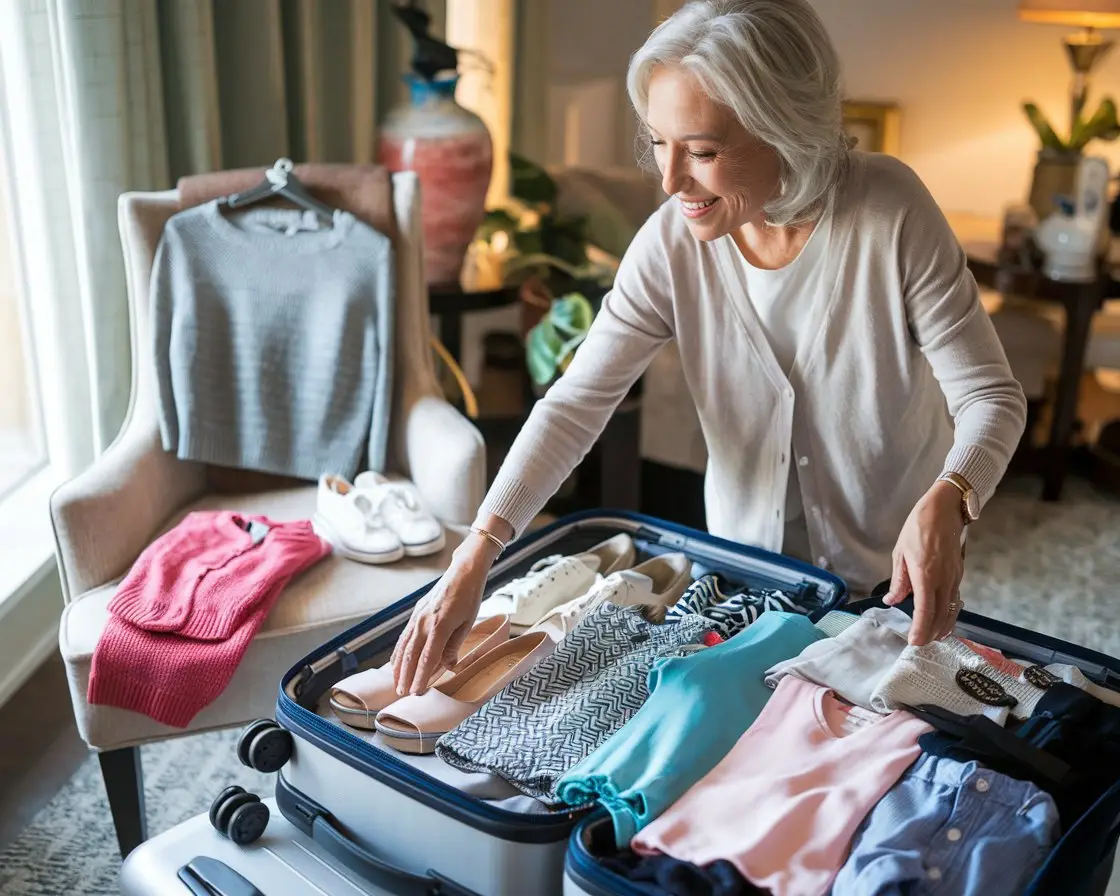
Step 3: Pack Like a Pro
Packing for a cruise is different from regular holidays. Here’s what actually matters:
The Essentials
- Layers: Weather can change, so pack accordingly
- Formal wear: Most cruises have formal nights – our complete guide to cruise formal night outfits covers everything you need
- Day bag: Essential for shore excursions
- Power strip: Cruise cabins have limited outlets
- Medications: Pack extras in case of delays
What Not to Overthink
Don’t stress too much about clothes. Check out our 25 unique cruise outfit ideas for inspiration, but remember – you can buy anything you forgot onboard or in ports.
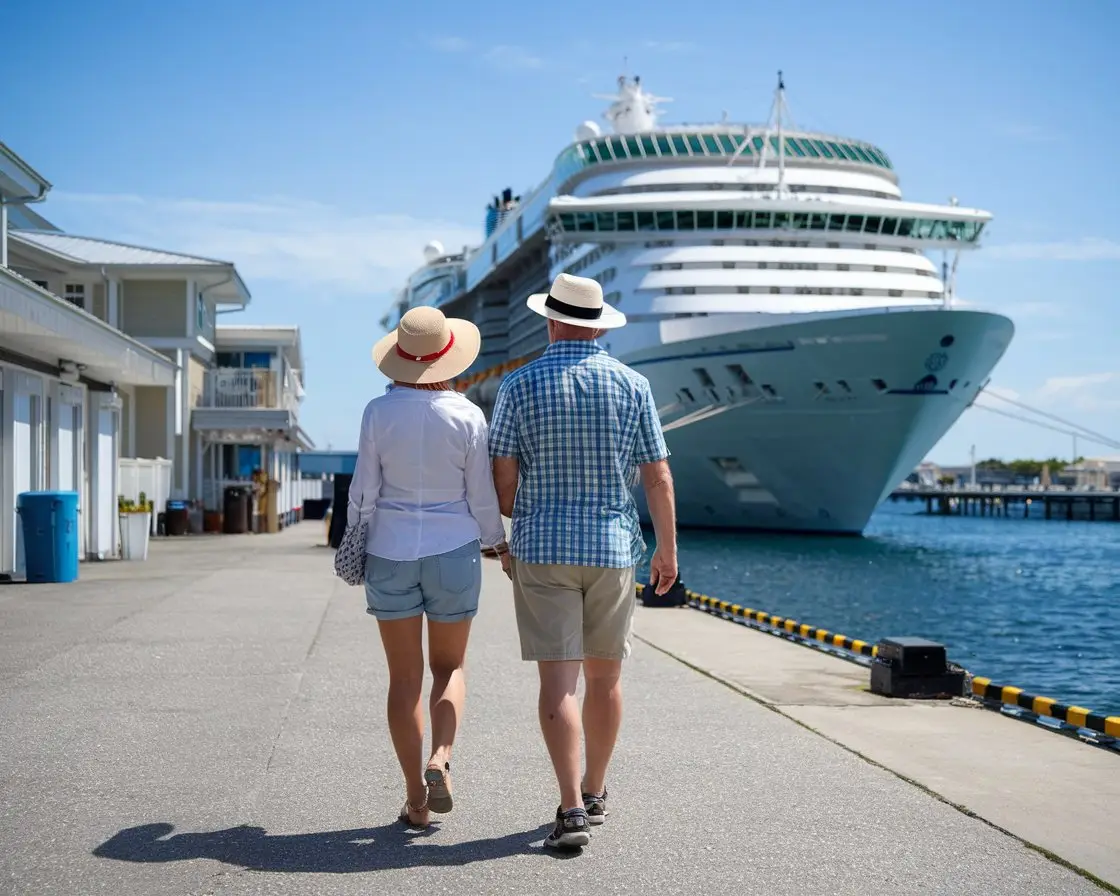
Step 4: Arrive a Day Early
This is the golden rule of cruising. Arrive at your departure port a day early. Flight delays happen, traffic exists, and starting your holiday stressed is no fun.
Plus, you get to explore the departure city. If you’re sailing from Southampton, you can visit the historic waterfront. Flying to Barcelona? Perfect excuse to see the city before your Mediterranean cruise.
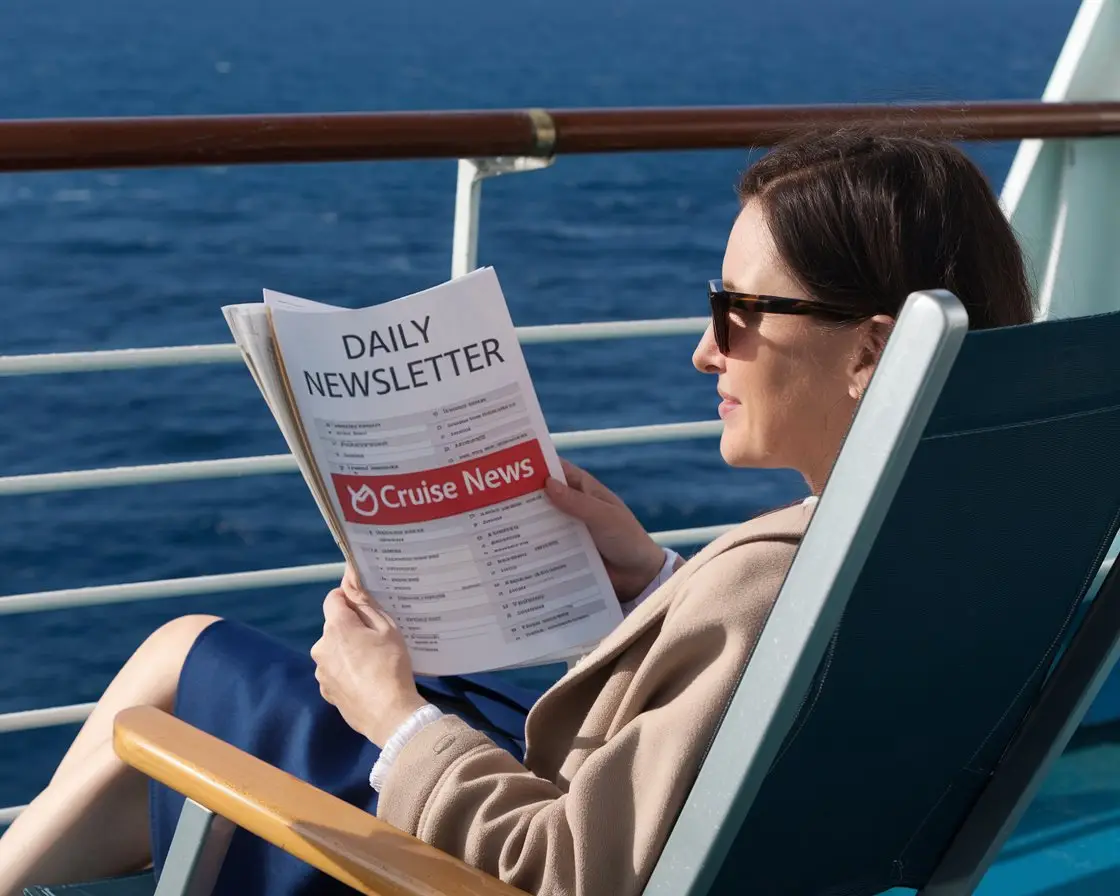
Step 5: Make the Most of Your First Days
Read the Daily Newsletter
Every morning, you’ll get a newsletter with activities, shows, and dining options. Don’t just glance at it – actually read it. Some of the best experiences are hidden in there.
Book Specialty Dining Early
If your ship has specialty restaurants, they’re often worth the extra cost. Book as soon as you board – the best times fill up quickly.
Connect with Other Passengers
Join a Cruise Critic Roll Call before you sail. It’s a great way to meet people and sometimes organize group excursions that cost less than ship tours.
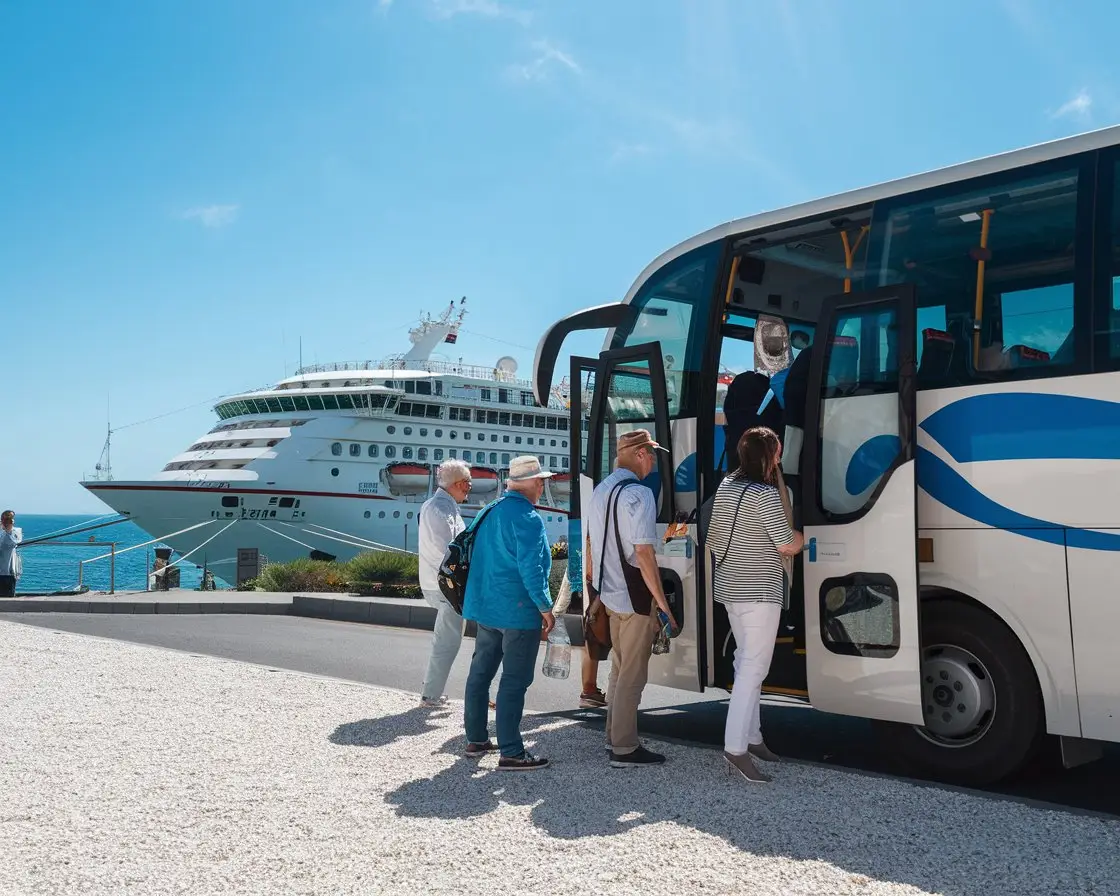
Shore Excursions: Ship Tours vs. Independent
This is where you can save serious money. Booking your own shore excursions often costs half what ship tours charge.
When to Book Ship Excursions
- First time in a destination
- Limited time in port
- Want guaranteed return to ship
When to Go Independent
- You’ve researched the port
- Longer port stays
- Want to save money
Pro tip: Get off the ship early. There can be hundreds of people trying to disembark at once, and waiting an hour to get off is frustrating.
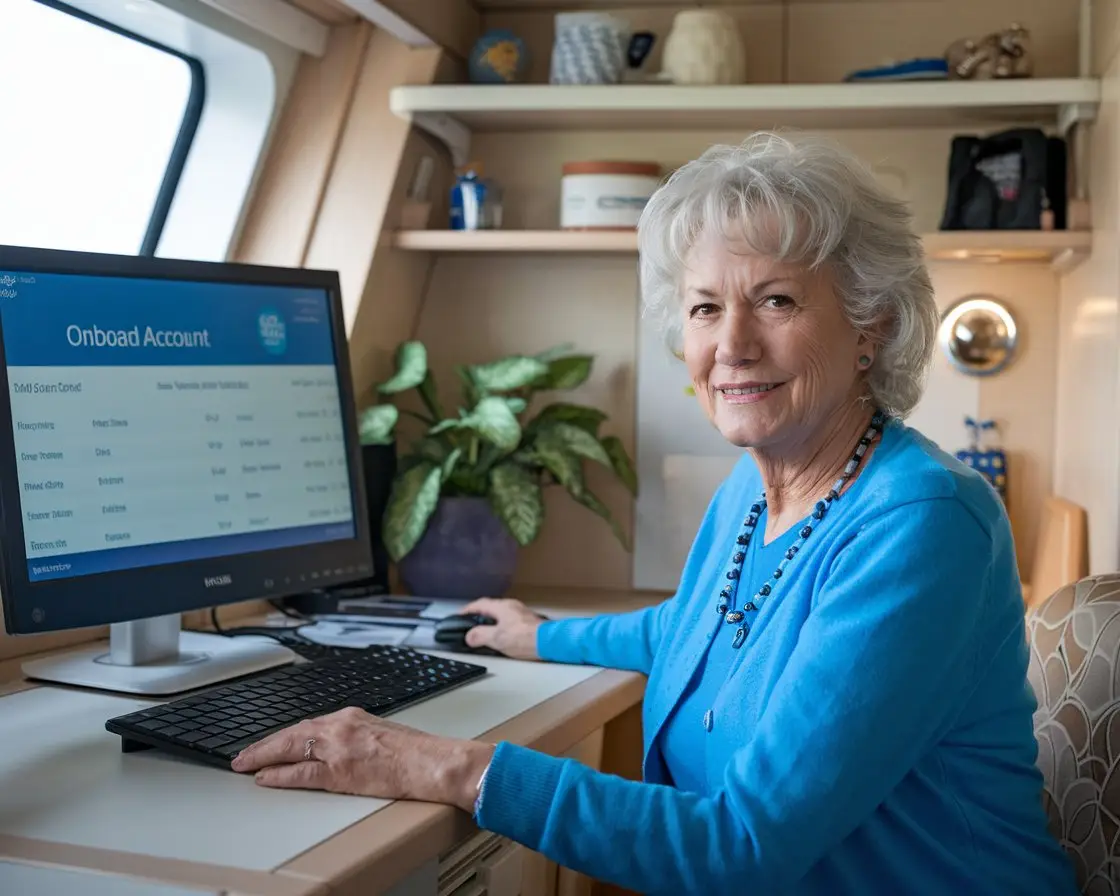
Managing Your Onboard Account
This is where first-timers often get surprised by their final bill. Here’s how to stay in control:
Set a Budget and Stick to It
- Link a debit card instead of credit to avoid overspending
- Check your account daily using the ship’s app
- Set spending limits if the ship allows
Watch for Auto-Charges
- Automatic gratuities are added daily
- Room service often has fees
- Laundry can be expensive
- Some activities have hidden charges
- Internet packages can add up quickly – read our guide to avoid overspending on WiFi
Drink Packages
Figure out if drink packages are worth it before you buy. They can save money if you drink a lot, but many people overestimate how much they’ll drink on a cruise.
What Your Cruise Will Actually Cost
That £699 per person advertised fare doesn’t include drinks, shore excursions, specialty restaurants, WiFi, or mandatory gratuities. First-time cruisers consistently underestimate total spending by 50-100%.
Before you book, use our cruise budget calculator to see what you’ll actually spend. Factor in all the extras cruise lines don’t mention upfront. At least you won’t get bill shock on disembarkation day.
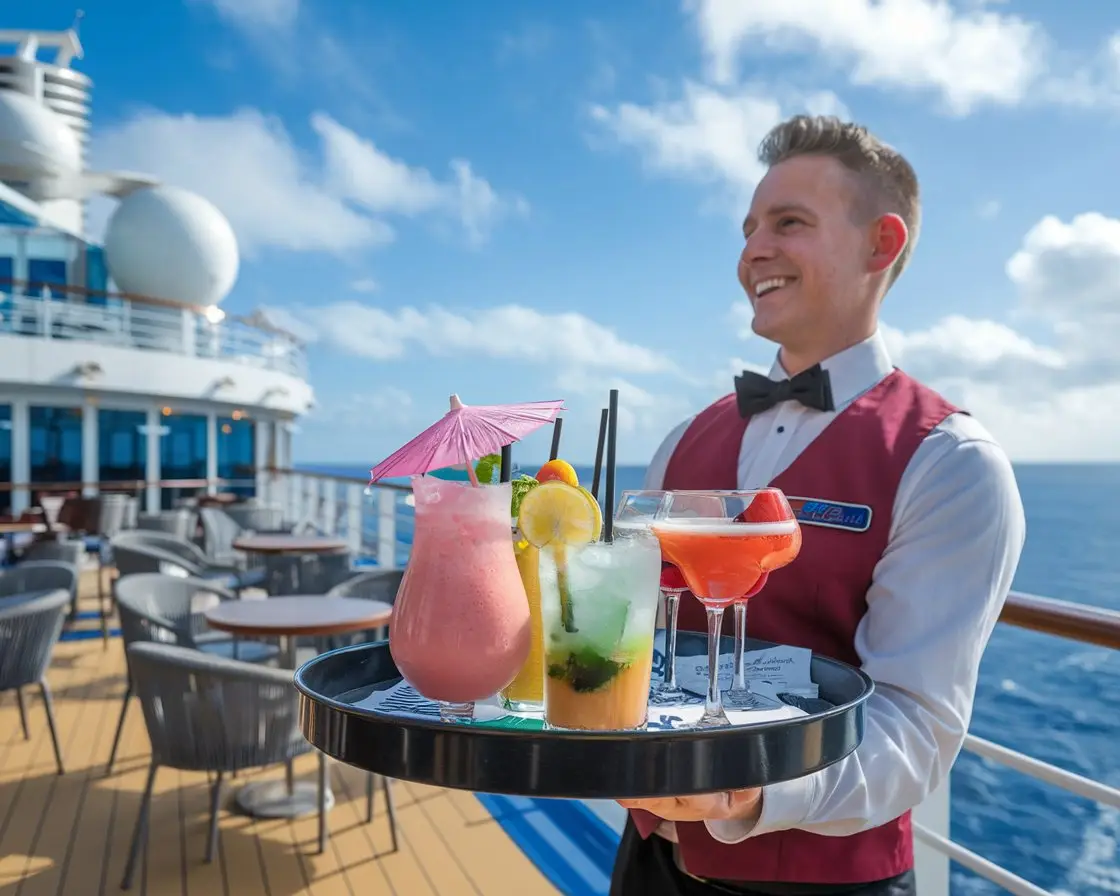
Your Last Day: Disembarkation Made Easy
The last day doesn’t have to be stressful if you plan ahead:
The Night Before
- Settle your account at guest services (avoids morning queues)
- Pack everything except essentials
- Put luggage out for collection or keep it with you for faster exit
Final Morning
- Keep passport, medications, and a change of clothes with you
- Check your cabin one final time
- Don’t rush to the exit – wait for your assigned time
- Have transport arranged in advance
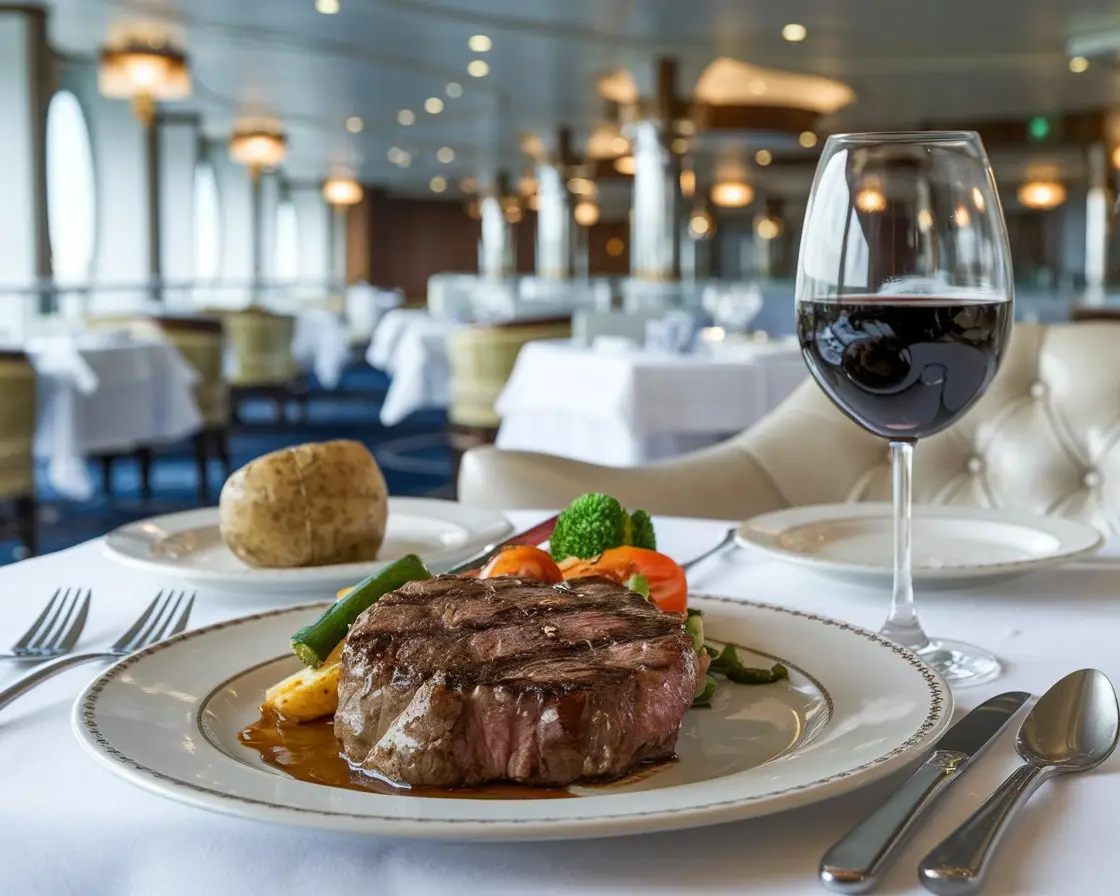
Popular Destinations for First-Time Cruisers
Based on 20 years of feedback, these destinations work brilliantly for cruise newbies:
- Mediterranean – Amazing ports like our detailed Dubrovnik cruise port guide
- Caribbean – Relaxed atmosphere, beautiful beaches
- British Isles – Easy from UK ports, English-speaking
- Alaska – Spectacular scenery, relaxed pace
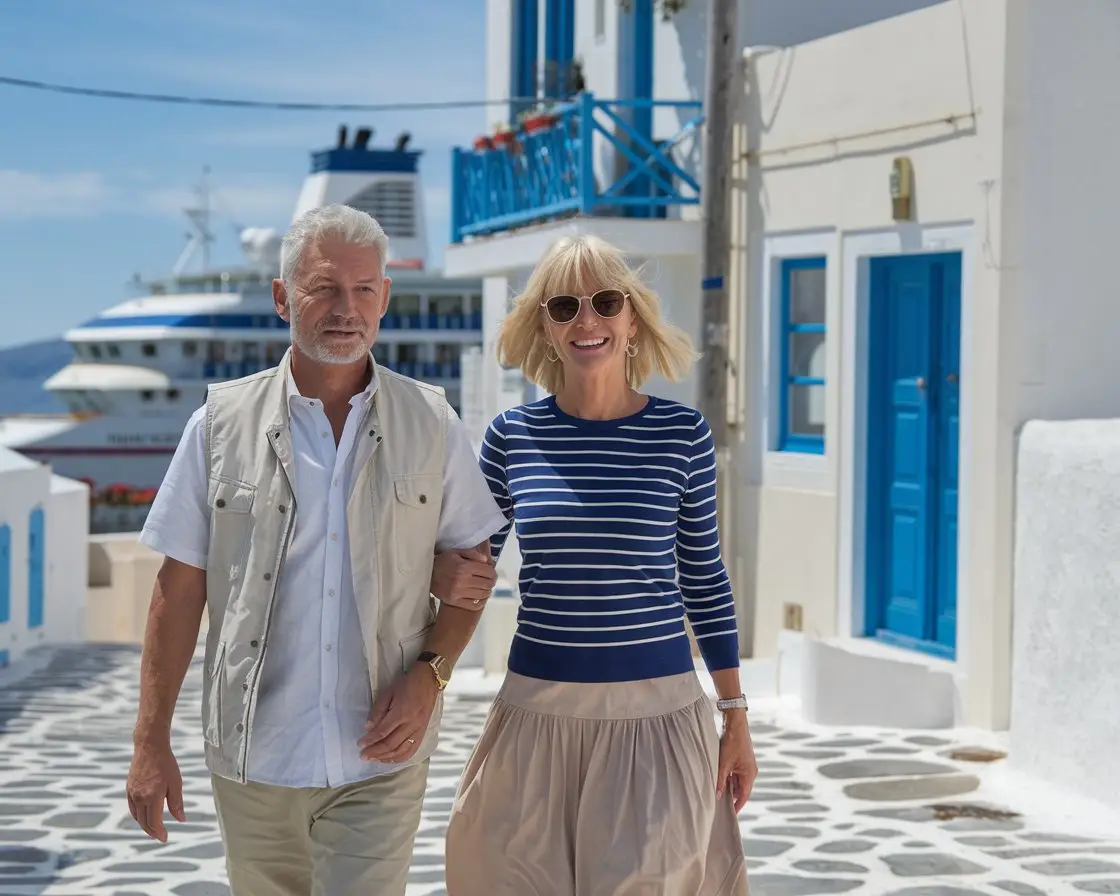
Frequently Asked Questions
How long should my first cruise be? Most first-timers love 7-14 day cruises. Long enough to settle in and try everything, short enough that you won’t get bored if cruising isn’t your thing.
Will I get seasick? Modern ships have excellent stabilizers. Most people are fine, but if you’re worried, bring motion sickness remedies and book a cabin midship on a lower deck.
Are cruises just for old people? Not at all! The average age varies by cruise line and itinerary. Royal Caribbean skews younger, Cunard more mature. Caribbean cruises during school holidays have loads of families.
What’s included in the price? Your cabin, all main dining, entertainment, and basic activities. You’ll pay extra for drinks (unless you buy a package), specialty dining, shore excursions, tips, and spa services.
Do I need to dress up? Most nights are casual. There are usually 1-2 formal nights per week where men wear suits and women wear cocktail dresses. You can skip formal dining if you prefer.
Can I use my phone? Yes, but ship internet can be very expensive. Consider buying a ship WiFi package or using international roaming plans.
What about tipping? Most ships add automatic gratuities (about £10-15 per person per day). You can adjust these at guest services. Our complete tipping guide explains everything.
Can I bring my own alcohol? Policies vary by cruise line. Most allow a bottle or two of wine, but spirits are usually prohibited. Check your specific cruise line’s policy.
What if I’m traveling alone? Solo cruising is increasingly popular! Check out our comprehensive singles cruises guide for everything you need to know about cruise solo.
Is cruising safe? Very safe. Modern ships have excellent safety systems, 24/7 medical facilities, and security throughout. You can wear jewelry and walk around after dark without worry.
Do I need a passport? Usually yes, especially for international cruises. Start the passport process early as it can take several weeks.
What about kids? Most ships have excellent kids’ programs with trained counselors. If you’re traveling with children, check out our family cruises guide for the best ships and tips.
Will I get bored? Unlikely! Modern ships are like floating resorts with rock climbing, amazing water slides, pools, spas, shows, classes, and more. Plus you visit new destinations every few days.
Can I do laundry onboard? Most ships have self-service launderettes (about £3 per load) or professional laundry services for higher fees.
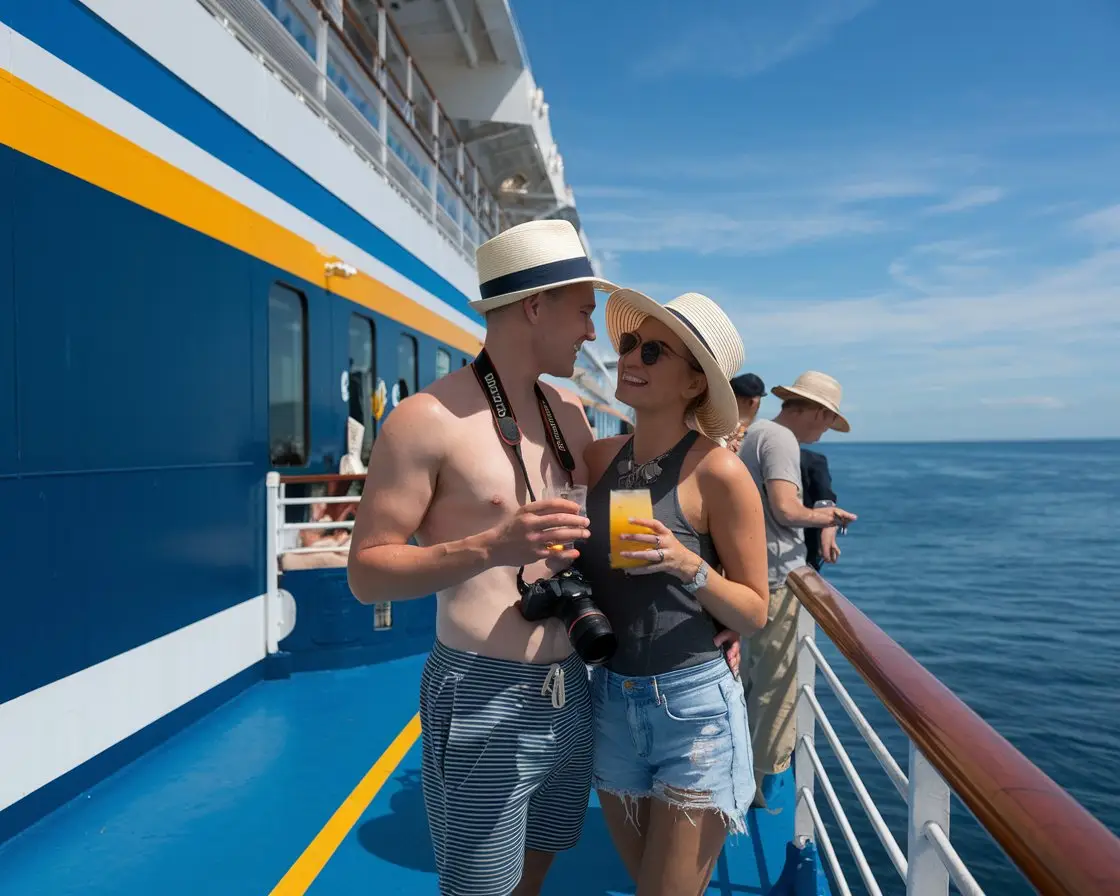
Special Considerations
Traveling with Disabilities
Many ships are well-equipped for accessibility needs. Read our guide on cruising with a disability for detailed information.
Honeymoons and Special Occasions
Cruises are perfect for celebrating! Most cruise lines offer special packages with champagne, flowers, and even cake. Just let them know when booking.
Business and Groups
Ships can handle work meetings and conferences. For large groups, you might even consider chartering an entire cruise ship.
Photography
Want to capture amazing memories? Check out our 80 epic cruise photo ideas to start planning your shots.
Ready for Your First Cruise?
Look, I could write another 5,000 words about cruising (and often do!), but the best way to understand it is to actually book one.
I’ve been helping first-time cruisers since 2004, and the overwhelming majority come back wanting to book their next cruise before they’ve even finished their first one.
Instead of spending days researching and getting overwhelmed by options, let me find you the perfect first cruise. I’ll match you with options that fit your budget, interests, and travel style – without the sales pressure or generic recommendations.
Your perfect first cruise is out there waiting. Let me help you find it.
Jo founded About2Cruise in 2004 after realizing how overwhelming cruise planning had become. She specializes in matching first-time cruisers with the right ships and itineraries, and has personally sailed on 50+ cruises. Her philosophy: there’s a perfect cruise for everyone – you just need to find the right match.
